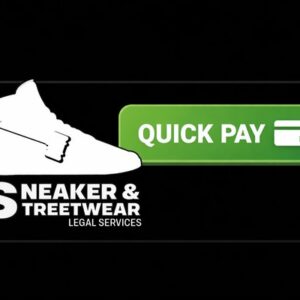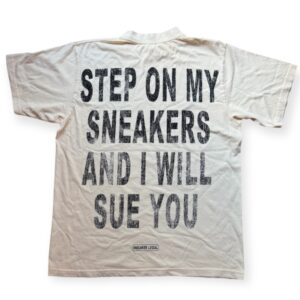Yesterday, news broke that LAPD allegedly confiscated over half a million dollars’ worth of stolen Nike sneakers and apparel in Los Angeles, and sneaker Twitter went wild. According to the LAPD, more than 2,100 unreleased pairs of Nike’s (AJ 4 Cave and Air Max 95’s), along with 150 cartons of fresh Nike gear were seized. This comes on the heels of the October 2, 2025, search and seizure of Cool Kicks in Los Angeles, and the arrest of founder Adeel Shams. Our previous article spelling out the details of that raid can be found here.

For resellers, this isn’t just another headline. It’s a reality check. This is certainly not the first news story that has broken about a sneaker store and stolen Nike goods. The sneaker game is big business. As the money in resale grows, so do the risks.
Stolen Nike’s: Why Sourcing Matters
We all know that selling counterfeits is just wrong and can lead to criminal and civil charges. But here’s the twist: your pair could be 100% legit and made by Nike yet still get you in trouble if it’s stolen property. That’s a whole different level of heat.
The initial information in Shams charging documents noted Bunco crimes, and the word “counterfeit” was thrown around. We now know that Shams was booked for Receiving Stolen Property, a violation of California Penal Code 496(a). Which states, “Every person who buys or receives any property that has been stolen or that has been obtained in any manner constituting theft or extortion, knowing the property to be so stolen or obtained, or who conceals, sells, withholds, or aids in concealing, selling, or withholding any property from the owner, knowing the property to be so stolen or obtained, shall be punished by imprisonment in a county jail for not more than one year, or imprisonment pursuant to subdivision (h) of Section 1170. However, if the value of the property does not exceed nine hundred fifty dollars ($950), the offense shall be a misdemeanor, punishable only by imprisonment in a county jail not exceeding one year…”
Under New York Law, NY Penal Code §§ 165.40–165.54 deal with criminal possession of stolen property. The main elements across these statutes include knowingly possessing stolen property with the intent to benefit oneself or a third party, or to impede the true owner’s recovery of the property. The degree of the charge in NY is determined by different factors, such as the value of the property. Each state is different, so make sure you consult with a local lawyer. As you see above, knowledge that the property was stolen is a core element criminally.
If you can’t trace where your kicks came from, you’re exposed. Think of receipts, invoices, and supplier info as your sneakers’ “birth certificates.” Without them, your grails could turn into evidence.
Protecting the Heat on Your Feet
For many resellers, sneakers and hype apparel aren’t just a side hustle, they are your business and how you support yourself and your family. Like any business these days, a business without a solid paper trail is vulnerable. Imagine losing your entire inventory overnight because you can’t prove where it came from.
Turning a blind eye or acting like you do not know the true source can also get you in trouble. In these searches they are typically seizing more than just stolen sneakers or apparel. Anything related to the stolen goods and those acts may be seized, such as POS systems, video recordings, electronic devices, sales and inventory records, shipping records, currency derived from illicit means…etc. So, those receipts showing proper, legit purchases and business transactions can help you, and records of the opposite will be found and may be used against you. Don’t get cheeky.
- Buy from trusted sources. If a deal seems too good to be true, it probably is. Not knowing the products are stolen, could possibly mitigate some criminal liability, but you are still out all of your product with no payment and have a lot more trouble to deal with now. Trust your gut and don’t be afraid to walk away.
- Document everything. Screenshots, receipts, DMs, you name it, keep a record. Do your homework before you buy. Having real documentation and paperwork is your shield. Every reseller should treat their receipts like prized possessions; just as important as the sneakers themselves.
- Don’t cut corners. Saving $100 on the front end isn’t worth a legal headache on the back end.
- Contracts. We would be remised to not point out that contracts are great to use and can literally limit your risks and liabilities regarding stolen products, counterfeits, getting paid on time and much more. You can have legally binding oral agreements, but it’s always best practices to get it all on paper. A paper napkin at a bar is even better than nothing sometimes.
From Grails to Jail: The Bottom Line
Reselling has moved from local meetups in parking lots and conventions in hotel ballrooms to billion-dollar platforms. Sneakerheads and collectors are linked and came buy and sell with each other across the globe. Like any maturing industry, the scrutiny is rising. Sort of how music piracy turned into Spotify, or how fake jerseys gave way to official Fanatics drops. Sneakers are on that same path, as the industry evolves and gains more structure, it also becomes subject to more rules and accordingly, more eyes watching.
The search and seizure at Cook Kicks is a reminder that sneakers aren’t just culture, they’re commodities. And commodities get policed. The more valuable the market, the more people, law enforcement included, want to know where the money is flowing.
If you’re reselling, don’t just chase the hype. Protect your hustle. Verify your sources. Keep your records. Because at the end of the day, it’s not just about flipping pairs and flexing; it’s about building something that lasts.
At Sneaker Legal, we help resellers navigate these risks before they become existential threats. From drafting airtight contracts to advising on compliance and authentication protocols, our role is to make sure your business operates on solid legal ground. If you’re a reseller who wants to avoid the mistakes now making headlines, reach out to Sneaker Legal today. Protect your Brand, protect your customers, and protect your future.
LEGAL DISCLAIMER
The content on this blog is for informational and educational purposes only and does not constitute legal advice. It’s meant to help creators, designers, and brands better understand the legal side of the sneaker, fashion, and streetwear industries. Not to provide advice on any specific situation.
Reading this post, commenting on it, or contacting Sneaker & Streetwear Legal Services through this website does not create an attorney–client relationship. I am an attorney, but I am not your attorney, until we both sign the Sneaker Legal Attorney Client Engagement Agreement.
Laws and regulations change, and how they apply depends on your unique facts and circumstances. Before making any business or legal decisions, you should consult with a qualified attorney licensed in your jurisdiction. Sneaker & Streetwear Legal Services makes no guarantees about the completeness, accuracy, or timeliness of the information provided here. Any opinions expressed are those of the author and don’t necessarily reflect the views of the firm or its clients.
If you’re looking for legal guidance tailored to your brand or creative business, reach out to us directly.






